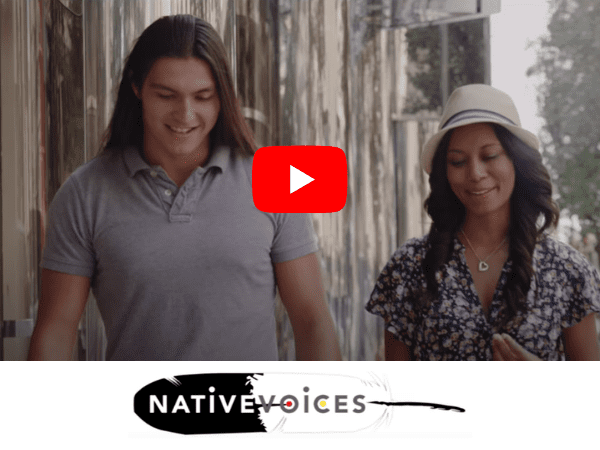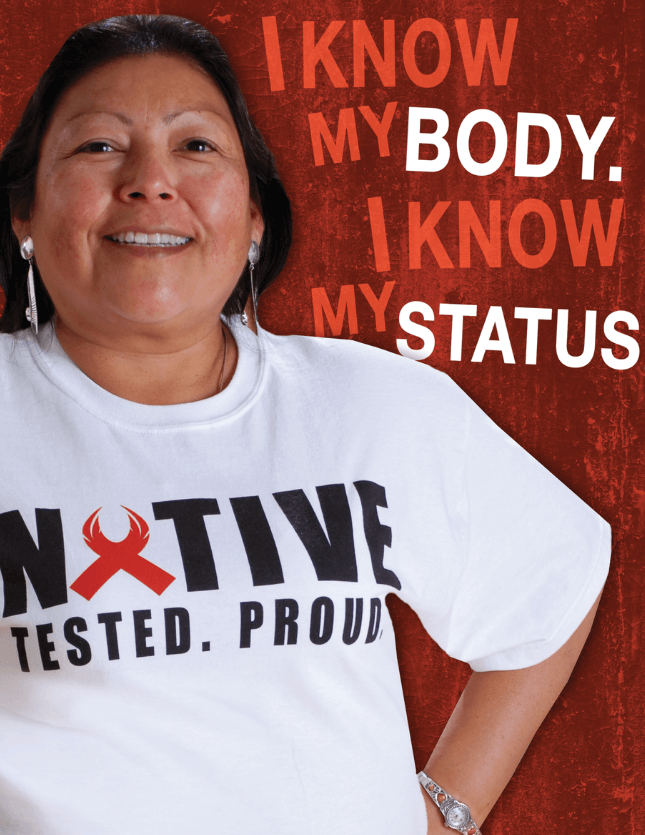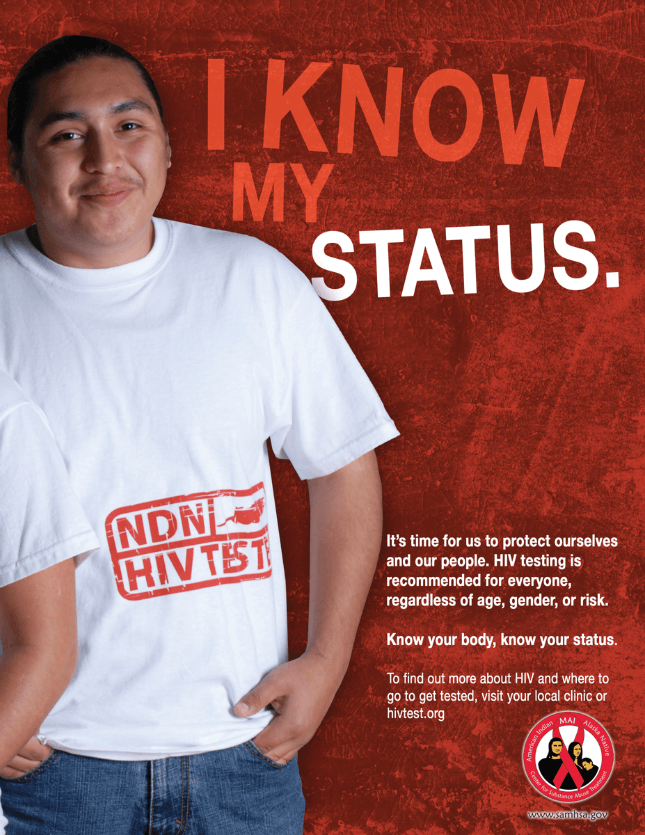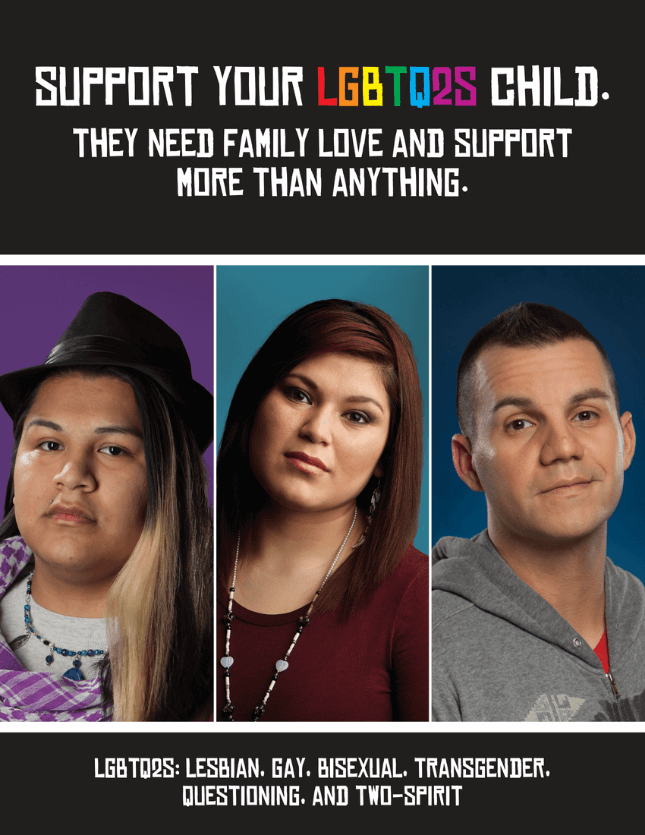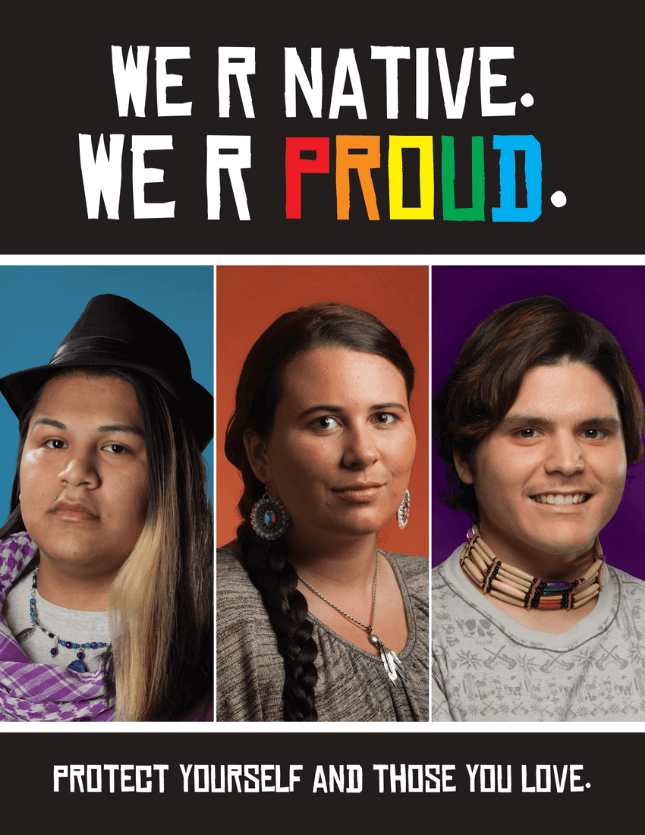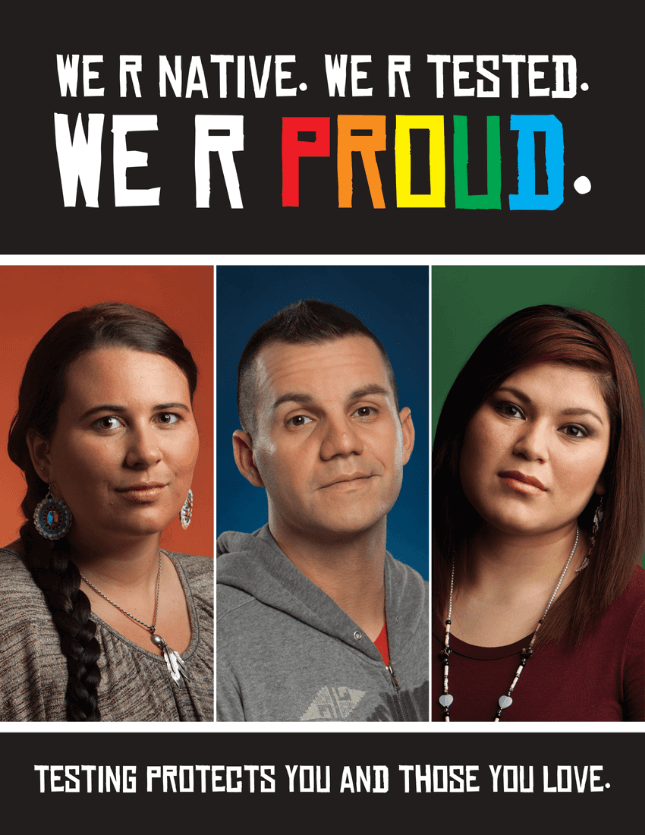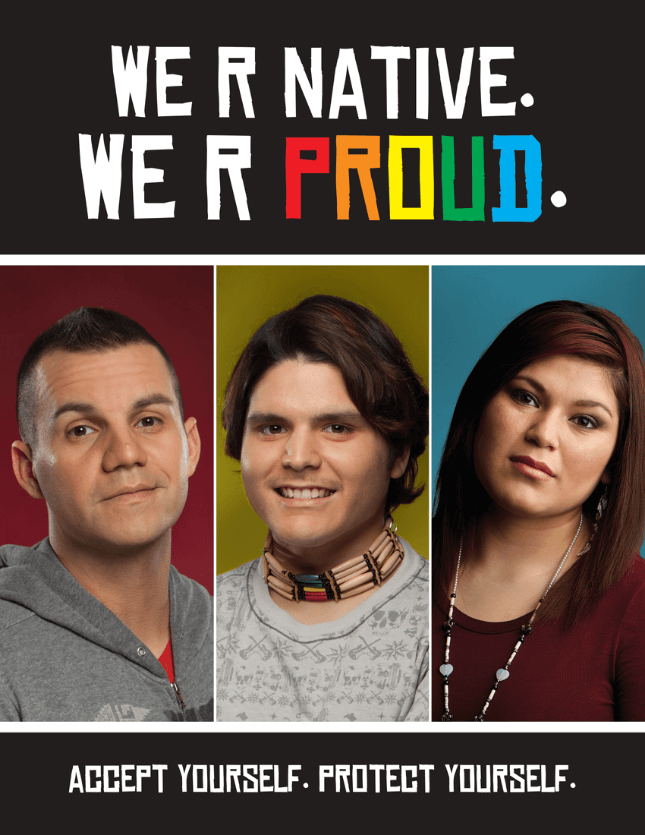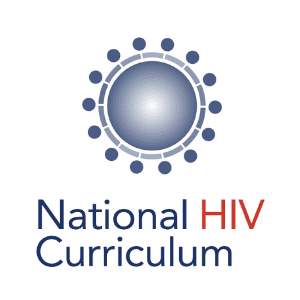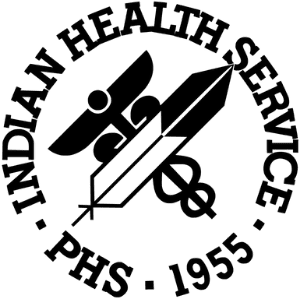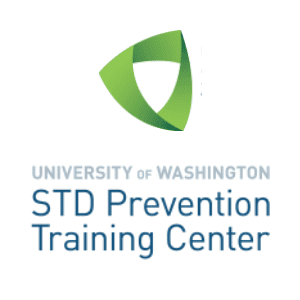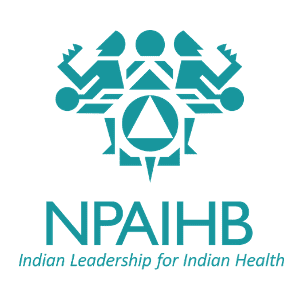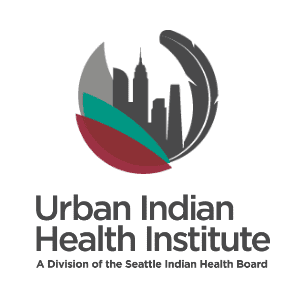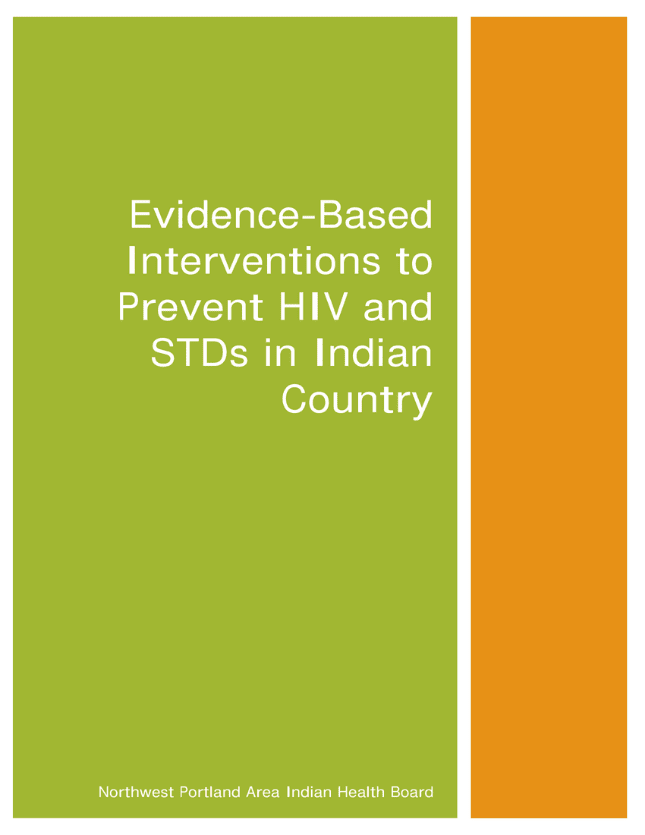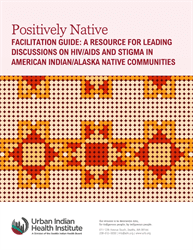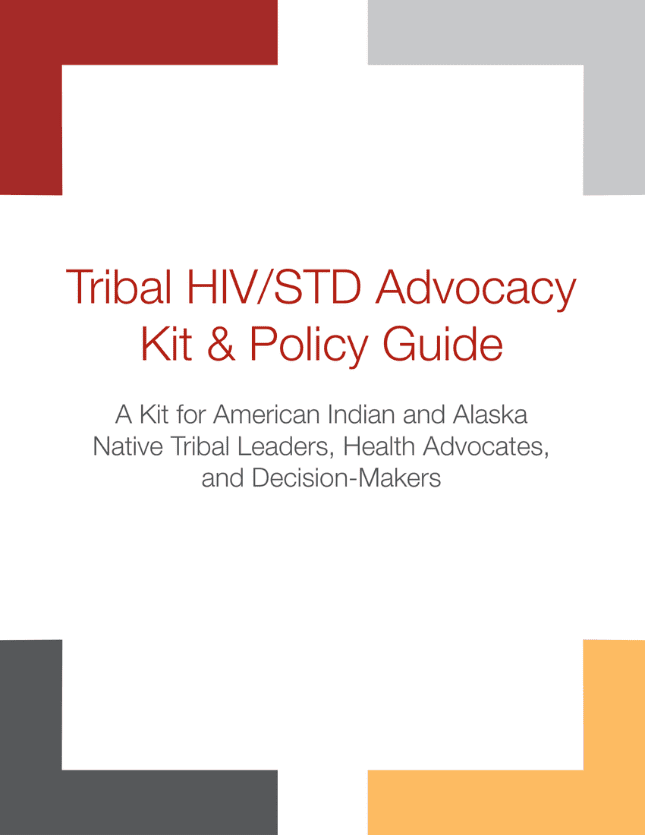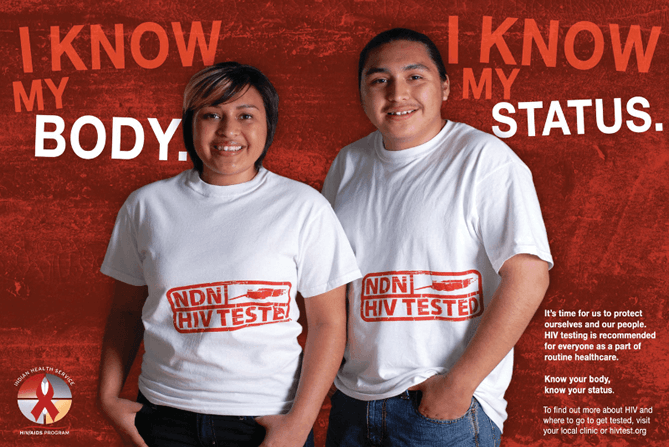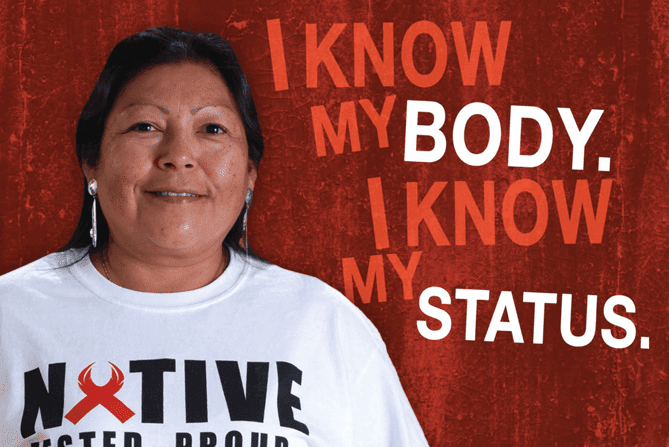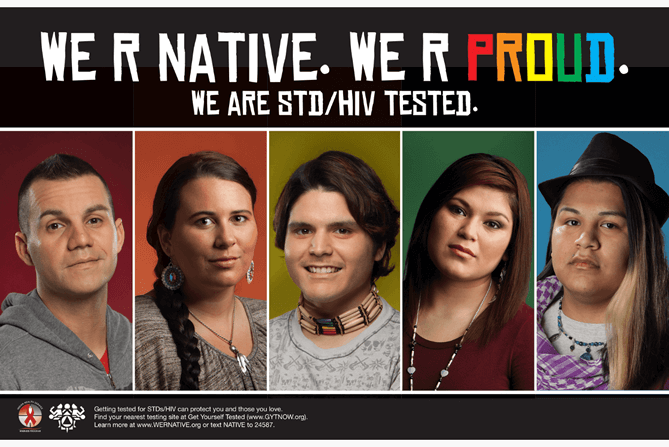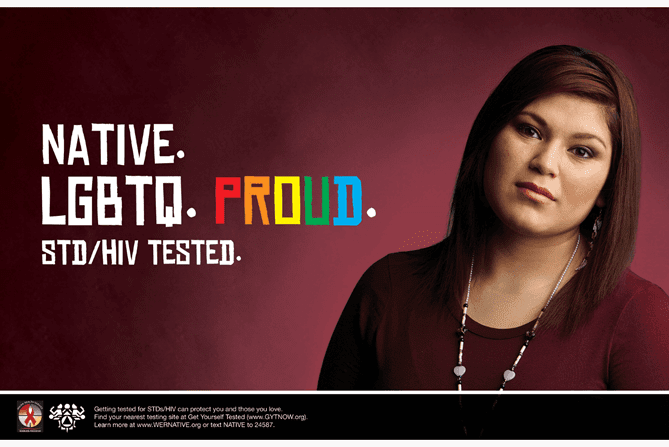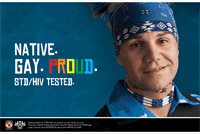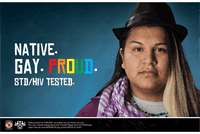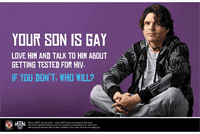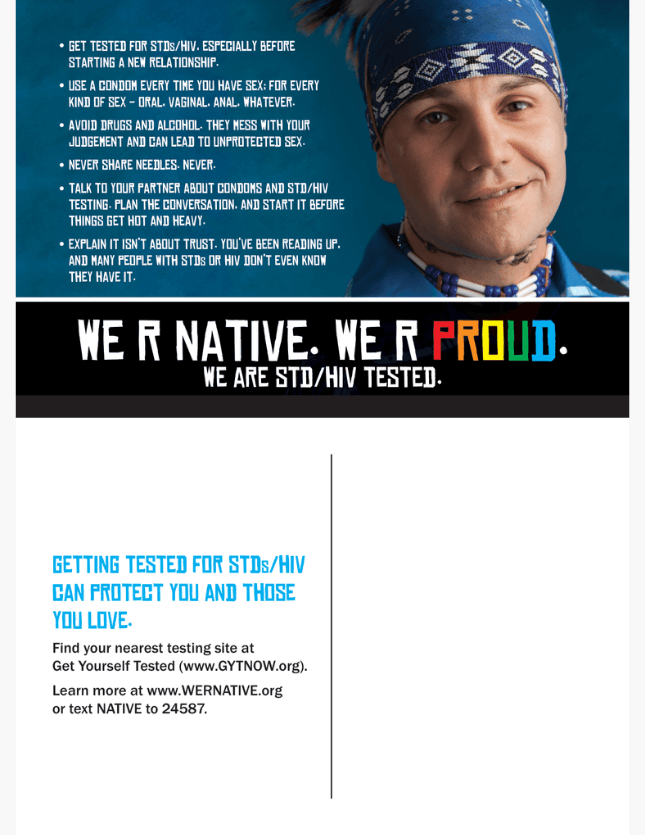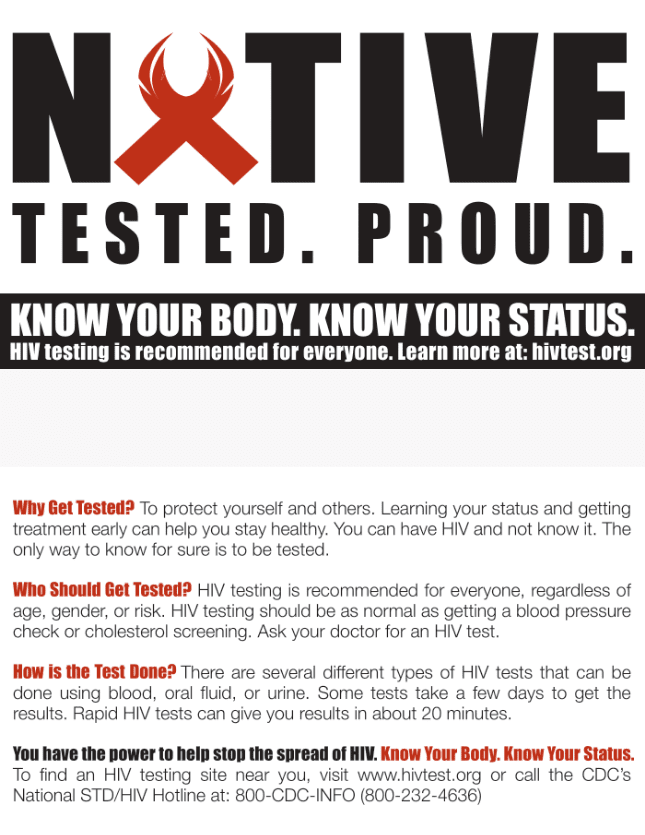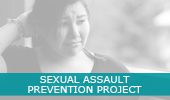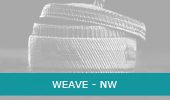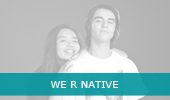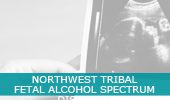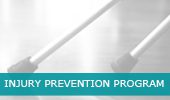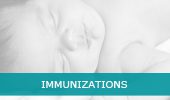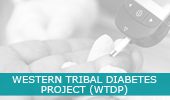Community Member
Number one health resource for Native youth by Native youth.
Want tips for talking to teens about sensitive topics?
Great health resource for Two Spirit LGBTQ+ community members.
Let’s Talk About HIV
Anyone can get HIV, but some people are at higher risk. Watch this video to learn how to reduce your risk.
Let’s Talk About HIV Prevention
Did you know PrEP can cut your risk of getting HIV by 99%? To learn more check out this video.
The Stigma Surrounding HIV Needs to End
As Indigenous people, we should never feel ashamed for talking about HIV. Instead, let’s use our voices and empower ourselves and others to take control of our health.
Native VOICES
Relationships and sex are complicated. Learn from Jamie, Jess, and their friends as they navigate, love, friendship, and learn to protect themselves.
Ask Auntie – About HIV and What Happens When a Condom Breaks
Check out this video where Auntie Amanda responds to the question: “I had sex with someone who is HIV+ and the condom broke. How can I make sure I don’t get sick?” To ask Auntie Amanda a question of your own click here.
Ask Auntie – About What an HIV Test is Like
Check out this video where Auntie Amanda responds to the question: “What’s an HIV test like?” To ask Auntie Amanda a question of your own click here.
Know Your Status
Getting tested for HIV is simple. Know your status and protect yourself and those you love.
Health Provider
Want access to effective health curricula for youth?
Free service to help I/T/U providers treat complex medical conditions.
Great health resource for Two Spirit LGBTQ+ community members.
Provider Trainings
For Patients
Let’s Talk About HIV
Anyone can get HIV, but some people are at higher risk. Watch this video to learn how to reduce your risk.
Let’s Talk About HIV Prevention
Did you know PrEP can cut your risk of getting HIV by 99%? To learn more check out this video.
The Stigma Surrounding HIV Needs to End
As Indigenous people, we should never feel ashamed for talking about HIV. Instead, let’s use our voices and empower ourselves and others to take control of our health.
Native VOICES
Relationships and sex are complicated. Learn from Jamie, Jess, and their friends as they navigate, love, friendship, and learn to protect themselves.
Ask Auntie – About HIV and What Happens When a Condom Breaks
Check out this video where Auntie Amanda responds to the question: “I had sex with someone who is HIV+ and the condom broke. How can I make sure I don’t get sick?” To ask Auntie Amanda a question of your own click here.
Ask Auntie – About What an HIV Test is Like
Check out this video where Auntie Amanda responds to the question: “What’s an HIV test like?” To ask Auntie Amanda a question of your own click here.
Know Your Status
Getting tested for HIV is simple. Know your status and protect yourself and those you love.
Indian Country ECHO – HIV Clinical Resources
Up-to-date list of clinical resources for preventing and treating HIV/AIDS.
Indian Health Service HIV Primary Care Guidelines
Recent advances in the treatment of HIV make this infection a primary care condition treatable at any IHS facility. This document helps set down standards of care for people living with HIV/AIDS (PLWHA) at Indian Health Service facilities.
Indian Health Service – HIV Clinical Resources
Useful HIV clinical resources provided by the Indian Health Service.
Clinical Guidelines
Federally approved medical practice guidelines for HIV/AIDS developed by panels of experts in HIV care.
IDEA NW
For data on HIV, STDs, and HCV in the Pacific Northwest; IDEA NW works to ensure vital health information gets to policymakers and leadership who need it most.
HIV and American Indians and Alaska Natives
Basic data on HIV among AI/AN people and subpopulations from the Centers for Disease Control and Prevention.
Assessing New Diagnoses of HIV Among American Indian/Alaska Natives Served by the Indian Health Service, 2005-2014
Article about HIV diagnoses among American Indian/Alaska Natives; identifies current rates and trends to support data-driven policy implementation and resource allocation.
Indian Country ECHO – Harm Reduction Clinical Resources
People who inject drugs are at increased risk for HIV infection. Harm reduction is a useful tool for helping patients’ decrease risk. View up-to-date harm reduction resources for clinicians and clinical administrators.
Posters
Native. Tested. Proud.
Adult | Teen
Native. LGBT. Proud.
We R Proud | Two Spirit | LGBTQ | Gay 1 | Gay 2 | Family Acceptance
Newspaper Ad
Native. LGBT. Proud.
We R HIV/STD Tested.
Fliers
Native. Tested. Proud.
Adult | Teen
Websites
WeRNative.org Sexual health resources for Native youth
HealthyNativeYouth.org Resources for parents and caring adults
Handouts
Accept Yourself. Protect Yourself.
Fact sheet designed to reduce stigma and promote HIV testing among Two Spirit and LGBTQ+ people; from NPAIHB’s Native. LGBT. Proud. Campaign.
Supporting Your LGBTQ2S Child
Fact sheet for parents about effectively supporting your LGBTQ2S child; from NPAIHB’s Native. LGBT. Proud. Campaign.
Protect Yourself and Those You Love
Fact sheet for Two Spirit and LGBTQ+ people about HIV, protecting yourself, and talking to partners about safer sex; from NPAIHB’s Native. LGBT. Proud. Campaign.
Testing Protects You and Those You Love
Fact sheet for Two Spirit and LGBTQ+ people about HIV, protecting yourself, and getting tested for HIV; from NPAIHB’s Native. LGBT. Proud. Campaign.
Native. Tested. Proud. Swag Bag Card
Business card handout on HIV testing perfect for swag bags and health fairs; from NPAIHB’s Native. Tested. Proud. Campaign.
Native. LGBT. Proud. Promotional Card
Half-page handout on HIV testing perfect for clinic waiting tables and health fairs; from NPAIHB’s Native. LGBT. Proud. Campaign.
PSAs
Native. Tested. Proud.
Adult PSA | Teen PSA
Native. LGBTQ. Proud.
Youth PSA | Family Acceptance PSA
Web Banner Ad
Native. Tested. Proud.
Web Ad
Window Cling
Native. Tested. Proud.
Native Tested Proud (7.5 x 3.75) | NDN Tested (7.5 x 3.75)
Text Message Campaigns
HIV Text Message Campaign Card – Youth
To be posted in clinical and educational settings to encourage AI/AN youth to text ‘SEX’ to 97779 to receive information about healthy relationships and preventing and treating STIs, including HIV/AIDS.
HIV Text Message Campaign Card – Parents/Caregivers
To be posted in clinic and other settings to encourage AI/AN adults to text ‘EMPOWER’ to 97779 to receive information on supporting positive youth relationships and healthy sexual behaviors.
Short Films
Native VOICES
A 23-minute, evidence-based video designed to prevent HIV and other STIs; for American Indian teens and young adults 15–24 years old; full curriculum can be found at healthynativeyouth.org.
Ask Auntie – About HIV
Ask Auntie is free Q and A service for Native youth offered by WeRNative.org. Check out these videos where Auntie Amanda answers young people’s questions about HIV. To ask Auntie Amanda a question of your own click here.
Ask Auntie – About HIV and What Happens When a Condom Breaks
Check out this video where Auntie Amanda responds to the question: “I had sex with someone who is HIV+ and the condom broke. How can I make sure I don’t get sick?” To ask Auntie Amanda a question of your own click here.
Ask Auntie – About What an HIV Test is Like
Check out this video where Auntie Amanda responds to the question: “What’s an HIV test like?” To ask Auntie Amanda a question of your own click here.
Know Your Status
Short video encouraging tribal community members to get tested for HIV; from WeRNative.org.
Educational Campaigns
Native. Tested. Proud. Campaign
Encourages HIV testing for everyone 13-64 years old.
Native. LGBT. Proud. Campaign
Designed to reduce stigma and promote HIV testing among Two Spirit and LGBTQ + community members.
Tribal HIV/STD Advocacy Kit & Policy Guide
Advocacy kit designed to help tribal health advocates and decision-makers address sexual health challenges in their communities through programmatic and policy changes.
Evidence-Based Interventions to Prevent HIV and STDs in Indian Country
Report by the Northwest Portland Area Indian Health Board and partners detailing evidence-based interventions and tribal best practices for reducing rates of HIV for AI/AN people.
Guide to Developing and Managing Syringe Access Programs
Comprehensive manual for starting and managing syringe access programs; guidance offered in several areas including: Planning and Design, Operational Issues, Organizational Issues, External Issues and Population-Specific Considerations.
Compassion, Action, and Healing: Working with Injection Drug Users in Native Communities
Important information relevant to people who inject drugs and those who work with this population.
Getting Off Right: A Safety Manual for Injection Drug Users
Easy-to-read survival guide for people who inject drugs (PWID); a compilation of medical facts, injection techniques, and strategies to keep PWID healthier and safer.
North American Syringe Exchange Network
Organization that offers useful information about starting and supplying syringe exchange programs.
Indian Country ECHO
Free service for I/T/U clinicians and programs to enhance care delivery for patients with complex conditions, including HIV/AIDS; offers a variety of online clinics, trainings, technical assistance, and capacity building.
National HIV Curriculum
The National HIV Curriculum is an AIDS Education and Training Center Program and led by the University of Washington.
University of Washington STD Prevention Training Center
State-of-the-art educational opportunities for providers, including experiential learning, with an emphasis on STD treatment and prevention.
HIV/AIDS Online Training Modules
Online modules to teach providers and community members about HIV/AIDS in American Indian/Alaska Natives.
PrEP Navigator Training
Series of 4 short online courses for community health representatives, patient navigators, health educators, and others about the benefits of pre-exposure prophylaxis; designed for staff working with American Indian and Alaska Native people interested in receiving information about PrEP screening and eligibility, initial and follow-up visits, and understanding special situations and stigma.
HIV Care and Sexual Health Assessment for American Indian and Alaska Native Patients
An e-learning course that focuses on educating healthcare professionals on providing culturally attuned HIV and sexual health care to AI/AN patients.
Indian Country ECHO – Technical Assistance and Capacity Building
Free service designed to optimize I/T/U clinical policies, enhance care delivery for patients, and build community capacity to prevent and treat complex medical conditions, including HIV.
HIV Warmline
Free expert advice on preventing and treating HIV, from initiating treatment to managing advanced disease.
Health Educator
Want access to effective health curricula for youth?
The only national health resource for Native youth by Native youth.
Great health resource for Two Spirit LGBTQ+ community members.
Let’s Talk About HIV
Anyone can get HIV, but some people are at higher risk. Watch this video to learn how to reduce your risk.
Let’s Talk About HIV Prevention
Did you know PrEP can cut your risk of getting HIV by 99%? To learn more check out this video.
The Stigma Surrounding HIV Needs to End
As Indigenous people, we should never feel ashamed for talking about HIV. Instead, let’s use our voices and empower ourselves and others to take control of our health.
Native VOICES
Relationships and sex are complicated. Learn from Jamie, Jess, and their friends as they navigate, love, friendship, and learn to protect themselves.
Ask Auntie – About HIV and What Happens When a Condom Breaks
Check out this video where Auntie Amanda responds to the question: “I had sex with someone who is HIV+ and the condom broke. How can I make sure I don’t get sick?” To ask Auntie Amanda a question of your own click here.
Ask Auntie – About What an HIV Test is Like
Check out this video where Auntie Amanda responds to the question: “What’s an HIV test like?” To ask Auntie Amanda a question of your own click here.
Know Your Status
Getting tested for HIV is simple. Know your status and protect yourself and those you love.
Tribal HIV/STD Advocacy Kit & Policy Guide
Advocacy kit designed to help tribal health advocates and decision-makers address sexual health challenges in their communities through programmatic and policy changes.
Indian Country ECHO – HIV Community Resources
Up-to-date list of resources for AI/AN community members on preventing and treating HIV/AIDS.
Positively Native Facilitation Guide
A resource for leading discussions on HIV/AIDS and stigma in American Indian/Alaska Native communities; should be used along with the Positively Native video.
Posters
Native. Tested. Proud.
Adult | Teen
Native. LGBT. Proud.
We R Proud | Two Spirit | LGBTQ | Gay 1 | Gay 2 | Family Acceptance
Newspaper Ad
Native. LGBT. Proud.
We R HIV/STD Tested.
Fliers
Native. Tested. Proud.
Adult | Teen
Websites
WeRNative.org Sexual health resources for Native youth
HealthyNativeYouth.org Resources for parents and caring adults
Handouts
Accept Yourself. Protect Yourself.
Fact sheet designed to reduce stigma and promote HIV testing among Two Spirit and LGBTQ+ people; from NPAIHB’s Native. LGBT. Proud. Campaign.
Supporting Your LGBTQ2S Child
Fact sheet for parents about effectively supporting your LGBTQ2S child; from NPAIHB’s Native. LGBT. Proud. Campaign.
Protect Yourself and Those You Love
Fact sheet for Two Spirit and LGBTQ+ people about HIV, protecting yourself, and talking to partners about safer sex; from NPAIHB’s Native. LGBT. Proud. Campaign.
Testing Protects You and Those You Love
Fact sheet for Two Spirit and LGBTQ+ people about HIV, protecting yourself, and getting tested for HIV; from NPAIHB’s Native. LGBT. Proud. Campaign.
Native. Tested. Proud. Swag Bag Card
Business card handout on HIV testing perfect for swag bags and health fairs; from NPAIHB’s Native. Tested. Proud. Campaign.
Native. LGBT. Proud. Promotional Card
Half-page handout on HIV testing perfect for clinic waiting tables and health fairs; from NPAIHB’s Native. LGBT. Proud. Campaign.
PSAs
Native. Tested. Proud.
Adult PSA | Teen PSA
Native. LGBTQ. Proud.
Youth PSA | Family Acceptance PSA
Web Banner Ad
Native. Tested. Proud.
Web Ad
Window Cling
Native. Tested. Proud.
Native Tested Proud (7.5 x 3.75) | NDN Tested (7.5 x 3.75)
Text Message Campaigns
HIV Text Message Campaign Card – Youth
To be posted in clinical and educational settings to encourage AI/AN youth to text ‘SEX’ to 97779 to receive information about healthy relationships and preventing and treating STIs, including HIV/AIDS.
HIV Text Message Campaign Card – Parents/Caregivers
To be posted in clinical and other settings to encourage AI/AN adults to text ‘EMPOWER’ to 97779 to receive information on supporting positive youth relationships and healthy sexual behaviors.
Short Films
Native VOICES
A 23-minute, evidence-based video designed to prevent HIV and other STIs; for American Indian teens and young adults 15–24 years old; full curriculum can be found at healthynativeyouth.org.
Ask Auntie – About HIV
Ask Auntie is free Q and A service for Native youth offered by WeRNative.org. Check out these videos where Auntie Amanda answers young people’s questions about HIV. To ask Auntie Amanda a question of your own click here.
Ask Auntie – About HIV and What Happens When a Condom Breaks
Check out this video where Auntie Amanda responds to the question: “I had sex with someone who is HIV+ and the condom broke. How can I make sure I don’t get sick?” To ask Auntie Amanda a question of your own click here.
Ask Auntie – About What an HIV Test is Like
Check out this video where Auntie Amanda responds to the question: “What’s an HIV test like?” To ask Auntie Amanda a question of your own click here.
Know Your Status
Short video encouraging tribal community members to get tested for HIV; from WeRNative.org.
Educational Campaigns
Native. Tested. Proud. Campaign
Encourages HIV testing for everyone 13-64 years old.
Native. LGBT. Proud. Campaign
Designed to reduce stigma and promote HIV testing among Two Spirit and LGBTQ + community members.
IDEA NW
For data on HIV, STDs, and HCV in the Pacific Northwest; IDEA NW works to ensure vital health information gets to policymakers and leadership who need it most.
HIV and American Indians and Alaska Natives
Basic data on HIV among AI/AN people and subpopulations from the Centers for Disease Control and Prevention.
Taking Care of Each Other: Indigenous Perspectives on Harm Reduction
Recorded webinar by the First Nations Health Authority that includes information on decolonizing addiction and Indigenous harm reduction.
Indigenous Harm Reduction Video Series
Video series about Indigenous harm reduction to help start discussions in Indigenous communities about harm reduction, substance use, and stigma.
Indian Country ECHO – Harm Reduction Community Resources
People who inject drugs are at increased risk for HIV infection. Harm reduction is a useful tool for helping people decrease their risk. View up-to-date harm reduction resources for AI/AN community members.
Healthy Native Youth
A one-stop-shop for educators and health advocates who want to expand learning opportunities for AI/AN youth. The site contains curricula, quizzes, handouts and training tools needed to access and deliver effective, age-appropriate sexual health programs.
Guide to Developing and Managing Syringe Access Programs
Comprehensive manual for starting and managing syringe access programs; guidance offered in several areas including: Planning and Design, Operational Issues, Organizational Issues, External Issues and Population-Specific Considerations.
Compassion, Action, and Healing: Working with Injection Drug Users in Native Communities
Important information relevant to people who inject drugs and those who work with this population.
Getting Off Right: A Safety Manual for Injection Drug Users
Easy-to-read survival guide for people who inject drugs (PWID); a compilation of medical facts, injection techniques, and strategies to keep PWID healthier and safer.
North American Syringe Exchange Network
Organization that offers useful information about starting and supplying syringe exchange programs.
Indian Country ECHO
Free service for I/T/U clinicians and programs to enhance care delivery for patients with complex conditions, including HIV/AIDS and harm reduction; offers a variety of online clinics, trainings, technical assistance, and capacity building.
National HIV Curriculum
The National HIV Curriculum is an AIDS Education and Training Center Program and led by the University of Washington.
HIV/AIDS Online Training Modules
Online modules to teach providers and community members about HIV/AIDS in American Indian/Alaska Natives.
PrEP Navigator Training
Series of 4 short online courses for community health representatives, patient navigators, health educators, and others about the benefits of pre-exposure prophylaxis; designed for staff working with American Indian and Alaska Native people interested in receiving information about PrEP screening and eligibility, initial and follow-up visits, and understanding special situations and stigma.
Indian Country ECHO – Technical Assistance and Capacity Building
Free service designed to optimize I/T/U clinical policies, enhance care delivery for patients, and build community capacity to prevent and treat complex medical conditions, including HIV.
HIV Warmline
Free expert advice on preventing and treating HIV, from initiating treatment to managing advanced disease.
- Patricia Yao, PhD, Rongwei Fu, PhD, Stephanie Craig Rushing, PhD, MPH, David Stephens, RN, Joan S. Ash, PhD, MBA, Karen B. Eden, PhD. Texting 4 Sexual Health: Improving Attitudes, Intention, and Behavior Among American Indian and Alaska Native Youth Health Promotion Practice DOI: 10.1177/1524839918761872
- Craig Rushing, S., & Gardner, W. (2016). Native VOICES: Adapting a video-based sexual health intervention for American Indian teens and young adults using the ADAPT-ITT model. American Indian and Alaska Native Mental Health Research, 23(1), 24-46. See: https://coloradosph.cuanschutz.edu/docs/librariesprovider205/journal_files/vol23/23_1_2016_24_craig_rushing.pdf?sfvrsn=81d1e0b9_2
- Markham, C. M., S. Craig Rushing, et al. “Factors Associated With Early Sexual Experience Among American Indian and Alaska Native Youth.” Journal of Adolescent Health 57(3): 334-341. DOI: 1016/j.jadohealth.2015.06.003
- Rushing, S. C., Gaston, A., Kaufman, C., Markham, C., Jessen, C., Gorman, G., Torres… (2015). Using Technology to Promote Health and Wellbeing among American Indian and Alaska Native Teens and Young Adults. Indigenous People and Mobile Technologies. Routledge Press.
- Gemelas J, Locker R, Rudd S, Prevost C, Reilley B, Leston J. (2015) Impact of Screening Recommendations for the Identification of Chronic Hepatitis C Virus Infection Among Persons Born During 1945-1965: A Primary Care Case Study.
- Reilley B, Leston J, Tulloch S, Neel L, Galope M, Taylor M. (2015) Implementation of National HIV Screening Recommendations in the Indian Health Service. Journal of the International Association of Providers of AIDS Care. February 2015.
- Desiderio, G., Garrido, M., Martínez García, G., and Eisler, A. (2014). Lessons Learned in Providing Health Care Services for Native Youth. Baltimore: Healthy Teen Network. Download Report
- Rushing, S. C., Canniff, B., Gardner, W., Hoopes, M., Warren-Mears, V., & Left Hand Bull, J. (2014). Primary Prevention with American Indians and Alaska Natives. In Gullotta, T. P. & Bloom, M. (Eds.), Encyclopedia of Primary Prevention and Health Promotion. (2nd ed.). Heidelberg: Springer. pp 480-489.DOI: 1007/978-1-4614-5999-6_330
- Reilley B, Leston J, Redd JT, Geiger R. (2014) Lack of Access to Treatment as a Barrier to HCV Screening: A Facility-Based Assessment in the Indian Health Service. Journal of Public Health Management and Practice. July 2014.
- Leston, J, Reilley B. (2014) Screening for HIV, Chlamydia, and Hepatitis C: Improvement and Lessons Learned from 2010 to Present. IHS Primary Care Provider. April 2014.
- Onders R, Spillane J, Reilley B, Leston J. (2014) Use of Electronic Clinical Reminders to Increase Preventative Screenings in a Primary Care Setting: Blueprint from a Successful Process in Kodiak, AK. Journal of Primary Care and Community Health. January 2014.
- Rudd S, Gemelas J, Reilley B, Leston J, Tulloch S. (2013) Integrating Clinical Decision Support to Increase HIV and Chlamydia Screening. Preventative Medicine. December 2013.
- Gardner, W., & Craig Rushing, S. (2013). Native VOICES: Developing an evidence-based HIV/STI intervention for Native teens and young adults. The IHS Primary Care Provider: Vol. 38, No 4: 74.
- Leston, J., & Craig Rushing, S. (2012). WE R NATIVE: A Multimedia Health Resource for Native Teens and Young Adults. The IHS Primary Care Provider: Vol. 37, No 4: 101.
- Craig Rushing, S., & Stephens, D. (2012). Tribal recommendations for designing culturally appropriate technology-based sexual health interventions targeting Native youth in the Pacific Northwest. American Indian and Alaska Native Mental Health Research, 19(1), 76-101. Available at: https://coloradosph.cuanschutz.edu/docs/librariesprovider205/journal_files/vol19/19_1_2012_76_craig-rushing.pdf?sfvrsn=eef6e1b9_2.
- Craig Rushing, S., Stephens D., Leston, J., and Gardner, W. (Spring/Summer 2011). Surfing and Texting for Health: Media Use and Health Promotion Targeting NW Native Youth. NW Public Health Journal. Vol. 28. No. 1: p 16-17. Download the Article
- Smith M and Craig Rushing SN. (2011). Native STAND (Students Together Against Negative Decisions): Evaluating a School-Based Sexual Rush Reduction Intervention in Indian Boarding Schools. Health Education Monograph Series. Vol. 28, No 2: 67-74. Download the Article
- Craig Rushing, SN and Stephens, D. (2011). Use of Media Technologies by Native American Teens and Young Adults in the Pacific Northwest: Exploring their Utility for Designing Culturally-Appropriate Technology-Based Health Interventions. Journal of Primary Prevention. DOI: 10.1007/s10935-011-0242-z. Download the Article
- Stopping the Silence: Program Opens Lines of Communication to Cut STI Rate Among Native Americans. Tim Weldon. The Council of State Governments, Vol. 51, No. 3. March 2008. Download the Article
- Project Red Talon: Health care professionals, communities benefit from coalition’s HIV/STI training. Babette Herrmann. Indian Country Today. December 19, 2007. Download the Article
- Within the Hidden Epidemic: Sexually Transmitted Diseases and HIV/AIDS among American Indians and Alaska Natives. Kaufman CE, Shelby L, Mosure DJ, Marrazzo J, Wong D, de Ravello L, Craig Rushing S, Warren-Mears V, Neel L, Jumping Eagle S, Tulloch S, Romero F, Patrick S, Cheek J. Sexually Transmitted Diseases (May 2007). Download Report
- HIV-related risk behaviors, perceptions of risk, HIV testing, and exposure to prevention methods among urban American Indians and Alaska Natives. Lapidus J, Bertolli J, McGowan K, Sullivan P. (2006). AIDS Education and Prevention 18(6), 546-559. Download Report
- Sexually transmitted diseases among American Indians and Alaska Natives in Washington State, 1995-2000. Puuka E, Jackson S, Stehr-Green P. (n.d.) Northwest Tribal Epidemiology Center, Northwest Portland American Indian Health Board. Download Report
Tribal Leader
Want access to effective health curricula for youth?
Free service to help I/T/U providers treat complex medical conditions.
The only national health resource for Native youth by Native youth.
Tribal HIV/STD Advocacy Kit & Policy Guide
Advocacy kit designed to help tribal health advocates and decision-makers address sexual health challenges in their communities through programmatic and policy changes.
Indian Country ECHO – HIV Clinical Resources
Up-to-date list of clinical resources for preventing and treating HIV/AIDS.
PrEP Navigator Training
Series of 4 short online courses for community health representatives, patient navigators, health educators, and others about the benefits of pre-exposure prophylaxis; designed for staff working with American Indian and Alaska Native people interested in receiving information about PrEP screening and eligibility, initial and follow-up visits, and understanding special situations and stigma.
IDEA NW
For data on HIV, STDs, and HCV in the Pacific Northwest; IDEA NW works to ensure vital health information gets to policymakers and leadership who need it most.
HIV and American Indians and Alaska Natives
Basic data on HIV among AI/AN people and subpopulations from the Centers for Disease Control and Prevention.
Assessing New Diagnoses of HIV Among American Indian/Alaska Natives Served by the Indian Health Service, 2005-2014
Article about HIV diagnoses among American Indian/Alaska Natives; identifies current rates and trends to support data-driven policy implementation and resource allocation.
Taking Care of Each Other: Indigenous Perspectives on Harm Reduction
Recorded webinar by the First Nations Health Authority that includes information on decolonizing addiction and Indigenous harm reduction.
Indigenous Harm Reduction Video Series
Video series about Indigenous harm reduction to help start discussions in Indigenous communities about harm reduction, substance use, and stigma.
Indian Country ECHO – Harm Reduction Community Resources
People who inject drugs are at increased risk for HIV infection. Harm reduction is a useful tool for helping people decrease their risk. View up-to-date harm reduction resources for AI/AN community members.
Indian Country ECHO – Technical Assistance and Capacity Building
Free service designed to optimize I/T/U clinical policies, enhance care delivery for patients, and build community capacity to prevent and treat complex medical conditions, including HIV/AIDS.
Indian Country ECHO
Free service for I/T/U clinicians and programs to enhance care delivery for patients with complex conditions, including Hepatitis C; offers a variety of online clinics, trainings, technical assistance, and capacity building.
National HIV Curriculum
The National HIV Curriculum is an AIDS Education and Training Center Program and led by the University of Washington.
University of Washington STD Prevention Training Center
State-of-the-art educational opportunities for providers, including experiential learning, with an emphasis on STD treatment and prevention.
HIV/AIDS Online Training Modules
Online modules to teach providers and community members about HIV/AIDS in American Indian/Alaska Natives.
HIV Care and Sexual Health Assessment for American Indian and Alaska Native Patients
An e-learning course that focuses on educating healthcare professionals on providing culturally attuned HIV and sexual health care to AI/AN patients.
PrEP Navigator Training
Series of 4 short online courses for community health representatives, patient navigators, health educators, and others about the benefits of pre-exposure prophylaxis; designed for staff working with American Indian and Alaska Native people interested in receiving information about PrEP screening and eligibility, initial and follow-up visits, and understanding special situations and stigma.
Guide to Developing and Managing Syringe Access Programs
Comprehensive manual for starting and managing syringe access programs; guidance offered in several areas including: Planning and Design, Operational Issues, Organizational Issues, External Issues and Population-Specific Considerations.
Compassion, Action, and Healing: Working with Injection Drug Users in Native Communities
Important information relevant to people who inject drugs and those who work with this population.
Getting Off Right: A Safety Manual for Injection Drug Users
Easy-to-read survival guide for people who inject drugs (PWID); a compilation of medical facts, injection techniques, and strategies to keep PWID healthier and safer.
North American Syringe Exchange Network
Organization that offers useful information about starting and supplying syringe exchange programs.
The Syringe Access Fund
A national grantmaking collaborative that supports service providers and policy projects that reduce use of shared syringes and ensure their safe disposal.
Evidence-based Interventions to Prevent HIV and STDs in Indian Country
Report by the Northwest Portland Area Indian Health Board and partners detailing evidence-based interventions and tribal best practices for reducing rates of HIV for AI/AN people.
Tribal HIV/STD Advocacy Kit & Policy Guide
Advocacy kit designed to help tribal health advocates and decision-makers address sexual health challenges in their communities through programmatic and policy changes.
Indian Country ECHO
Free service for I/T/U clinicians and programs to enhance care delivery for patients with complex conditions, including HIV/AIDS; offers a variety of online clinics, trainings, technical assistance, and capacity building.
Positively Native Facilitation Guide
A resource for leading discussions on HIV/AIDS and stigma in American Indian/Alaska Native communities; should be used along with the Positively Native video.
Curricula
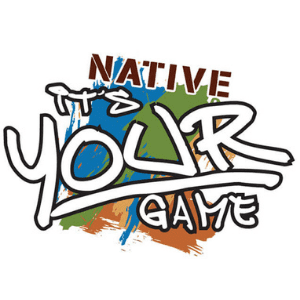
Native It’s Your Game
Online, 13 lesson, sexual health curriculum adapted for American Indian and Alaska Native middle school youth.
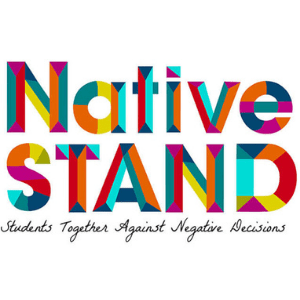
Native STAND
Healthy decision-making curriculum for American Indian and Alaska Native high school students.
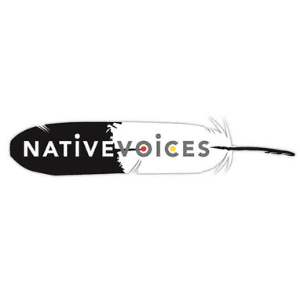
Native VOICES
Video-based curriculum for youth 15-24 years old designed to encourage condom use, and HIV/STI testing.
Curricula Website

Healthy Native Youth
HealthyNativeYouth.org contains health promotion curricula and resources for American Indian and Alaska Native youth.
The site is designed for tribal health educators, teachers, and parents – providing the training and tools needed to access and deliver effective, age-appropriate programs.
Community Member
For Community Members
Let’s Talk About HIV
Anyone can get HIV, but some people are at higher risk. Watch this video to learn how to reduce your risk.
Let’s Talk About HIV Prevention
Did you know PrEP can cut your risk of getting HIV by 99%? To learn more check out this video.
The Stigma Surrounding HIV Needs to End
As Indigenous people, we should never feel ashamed for talking about HIV. Instead, let’s use our voices and empower ourselves and others to take control of our health.
Native VOICES
Relationships and sex are complicated. Learn from Jamie, Jess, and their friends as they navigate, love, friendship, and learn to protect themselves.
Ask Auntie – About HIV and What Happens When a Condom Breaks
Check out this video where Auntie Amanda responds to the question: “I had sex with someone who is HIV+ and the condom broke. How can I make sure I don’t get sick?” To ask Auntie Amanda a question of your own click here.
Ask Auntie – About What an HIV Test is Like
Check out this video where Auntie Amanda responds to the question: “What’s an HIV test like?” To ask Auntie Amanda a question of your own click here.
Know Your Status
Getting tested for HIV is simple. Know your status and protect yourself and those you love.
Educational Campaigns
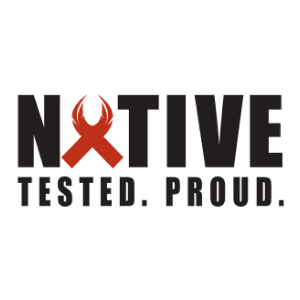
Native. Tested. Proud. Campaign
Online, 13 lesson, sexual health curriculum adapted for American Indian and Alaska Native middle school youth.
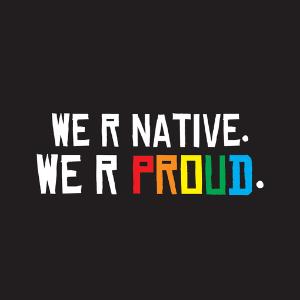
Native. LGBT. Proud. Campaign
Designed to promote HIV testing among Two Spirit and LGBTQ + people.
PrEP Navigator Training
Pre-exposure prophylaxis, or PrEP, can help prevent new cases of HIV in people who are at risk. PrEP simply involves taking a daily medicine, yet many providers know little about it and do not discuss it with their clients. This is especially true for staff working with American Indian and Alaska Native people within Indian Health Service, tribal, and urban Indian care systems.
The PrEP Navigator Training is a series of four courses designed to increase the knowledge and awareness of community health representatives, patient navigators, health educators, and others about the benefits of PrEP.
This training includes:
- PrEP Basics (.5 hour)
- PrEP Screening and Eligibility (.5 hour)
- Initial and Follow-up PrEP Visits (.75 hour)
- Understanding PrEP Special Situations and Stigma (.75 hour)
Who should participate?
Modules were designed specifically for community health representatives, patient navigators, and health educators. However, physicians, registered nurses, and other clinic staff who see American Indian and Alaska Native clients may benefit as well.
Continuing Education Credits
Continuing medical education and continuing education units are available to those who participate in this training.
The PrEP Navigator Training for Community and Public Health Staff is made possible with resources from the Minority HIV/AIDS Fund with the production efforts of the Northwest Portland Area Indian Health Board and training, organization, and evaluation from Cardea Services, with special thanks to American University and the 2017 CAPSTONE students assigned to the IHS National HIV/HCV Program.
Project Red Talon
Project Red Talon works to prevent human immunodeficiency virus (HIV), sexually transmitted infections (STIs) and hepatitis C virus (HCV). The project has provided training and technical assistance to tribes and tribal organizations throughout the U.S. on implementing and evaluating culturally appropriate sexual health and STI/HIV prevention programs since 1988.
The primary goal of this project is to promote sexual health and wellness for AI/AN people by disseminating and implementing effective programs from a socio-ecological framework, addressing systems, communities, organizations, individuals, and policies.
Project Red Talon works with partners across the nation to:
- Build the capacity of leadership across all levels of influence to advance tribal health policy
- Improve STI/HIV/HCV testing, screening, treatment, and reporting practices within NW tribal clinics
- Strengthen the capacity of tribal health educators, program managers, and clinicians to provide STI/HIV/HCV prevention services to their local community
- Increase community awareness about STI/HIV/HCV prevention and treatment services
Our work is generously funded by the Minority AIDS Initiative Fund.
For additional information about our program contact Stephanie Craig Rushing, Project Director, at the Northwest Portland Area Indian Health Board at scraig@npaihb.org.
Information about Project Red Talon and other HIV/STI prevention activities can be found on the Board’s Project Red Talon National Network page and on the Healthy Native Youth website.
Enhancing Perspectives in Clinics and Communities Program
The mission of the Enhancing Perspectives in Clinics and Communities (EPCC) Program at the Northwest Portland Area Indian Health Board (NPAIHB) is to build the capacity for Indigenous people, healthcare professionals, traditional knowledge holders, and policymakers to enhance the health and wellness of American Indian and Alaska Native (AI/AN) people and communities.
We believe that it is the role of the Indigenous peoples of Turtle Island to care for our relatives and relations as well as ourselves.
We know we cannot do this alone. That is why we bring together providers, traditional knowledge holders, health advocates, clinic leadership, policymakers, and community members to:
- Develop innovative solutions that advance the health of AI/AN people and communities in positive and affirming ways
- Assist Indigenous people and healthcare professionals in building trusting and compassionate relationships
- Establish innovative and forward thinking clinical and public health policies and practices that rely on Indigenous perspectives, the knowledge of our ancestors, and Western medicine and science
- Build the capacity of leadership across all levels of influence to advance tribal health policy
Our priority is leaving footsteps to help guide the next generation along the path of good health and wellness.
Guided by our leadership, we contribute to clinical and community work in the following priority health issue areas:
- HIV/AIDS
- Hepatitis C
- Substance Use Disorders, including Opioid Use Disorder
- Two Spirit Health and LGBTQ+ Health
- Behavioral Health
- Other emergent health and wellness needs
The EPPC Program directly helps tribes in several ways:
Technical Assistance and Capacity Building
Through Indian Country ECHO, we offer free support to IHS, Tribal, and Urban (I/T/U) clinics to optimize their policies and enhance care delivery. Through this service we also offer support to tribal leadership interested in building community capacity to prevent and treat complex medical conditions.
Quality Improvement
The EPPC Program collaborates with providers, public health professionals, and administrators to ensure that AI/AN people and communities receive high quality healthcare. Our approach to quality improvement draws on the knowledge of subject matter experts, evidence-based tools, best practices in clinical science, systems theory, Indigenous knowledge, psychology, and other fields of study.
Patient-Specific Recommendations
Through a collaboration with the University of California- San Francisco, IHS offers providers practicing at I/T/U facilities on-demand clinical recommendations from experts via the Substance Use Warmline.
Through Indian Country ECHO, we offer free online ECHO clinics and trainings that provide a platform for providers practicing at I/T/U facilities to receive on-demand clinical recommendations from experts and colleagues across Indian Country.
Provider and Community Education Campaigns
EPCC creates evidence-based and community-tested health education campaigns and resources for AI/AN peoples and I/T/U clinicians. These include opioids, HCV, and Two Spirit and LGBTQ+ Health campaigns.
Our work is generously funded by several entities.
EPCC Program initiatives are funded by the Minority HIV/AIDS Fund, Indian Health Service, Substance Abuse and Mental Health Services Administration, and the Office of Minority Health.
For additional information about our program:
Contact Eric Vinson, Program Manager at the Northwest Portland Area Indian Health Board at evinson@npaihb.org or 503-416-3295.
For information about our HIV/AIDS resources, please contact Stephanie Craig Rushing or Jessica Leston at the Northwest Portland Area Indian Health Board at scraig@npaihb.org or jleston@npaihb.org.
